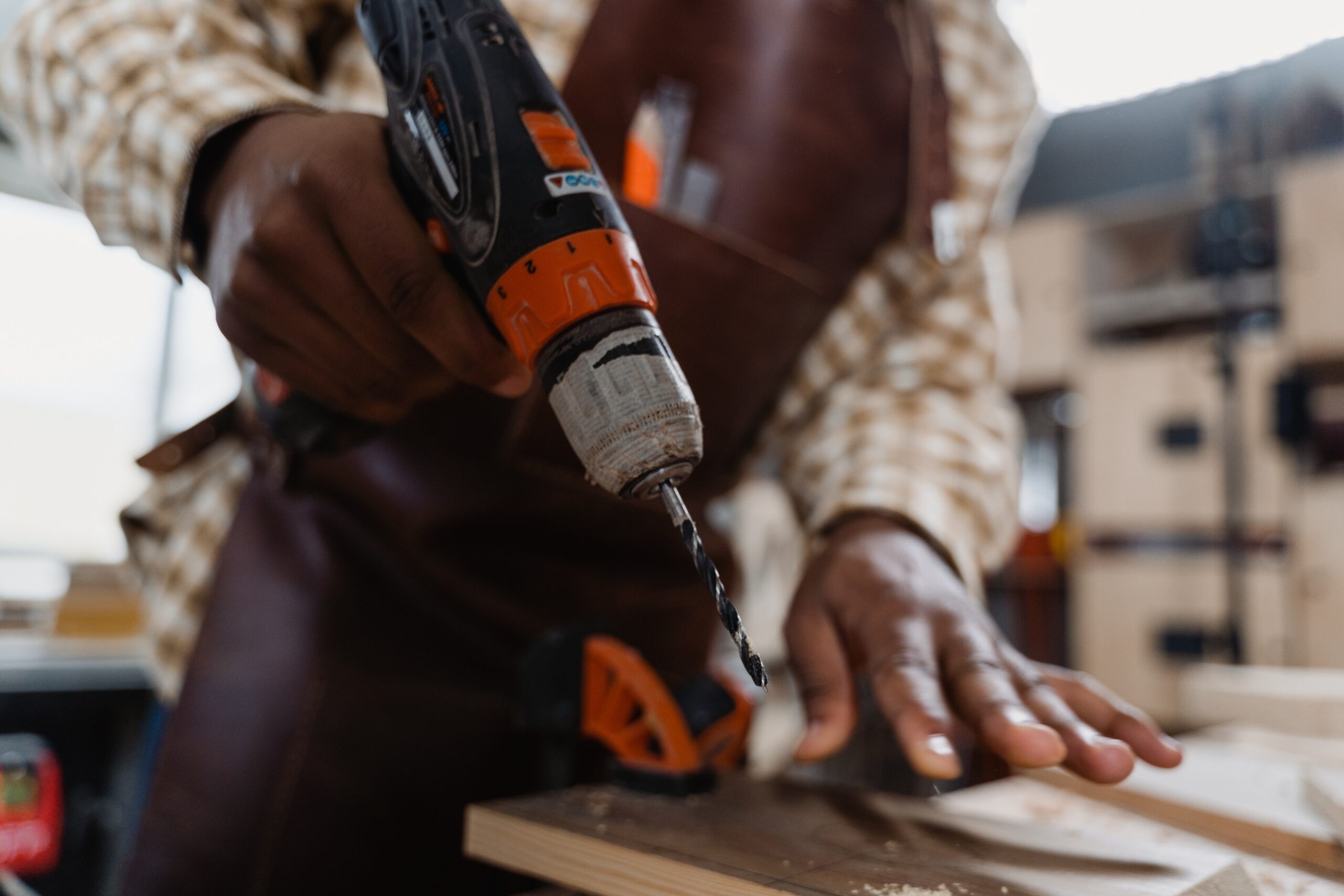Like all Ridgid tools, Ridgid drills are well-made and built to last.
However, drills, like all machines, are prone to malfunction, causing you to become frustrated if you are unable to complete your DIY project.
Before you give up on your Ridgid drill, read this article first.
Ridgid Drill Not Working
The drill will not spin or make any noise when the trigger is pulled.
The most likely causes of a Ridgid drill not working are a bad or uncharged battery, a problem with the motor, or a broken trigger switch.
Solution/s
- If you have a spare battery, connect it to the drill to see if it works. If the drill does not work, try charging a battery. Turn on the battery to see if it charges. If the battery charges and the drill still does not work, but the trigger works, the problem is most likely with the motor. If the battery did not charge, proceed to the next step.
- Try the charger on another outlet to see whether the outlet is functional. Replace the charger with a new one if the outlet is functional because the problem may be with the charger itself.
- Push the battery into the drill until it is firmly attached to ensure that it is connected. Verify that the battery is completely charged. Try a fresh battery if everything else fails.
- If it still doesn’t work, make sure the battery is in good contact with the power terminals in the handle. The signal wires at the soldered connector inside the hand may have been broken due to vibration.
- Finally, inspect the trigger switch, ensuring it still works as normal.
If batteries are charged your Ridgid Drill still does not work, the problem is most likely with the motor. It is best to have it replaced if it is still under warranty or to buy a new one.
Ridgid Drill Not Charging
A common reason for a Ridgid drill not charging is that the battery was not properly inserted into the charger, the charger has been damaged, the battery overheating, the charger was not plugged in, or the charger or battery is faulty.
Solution/s
- First, ensure the battery is correctly placed in the charger, and that the charger is clean from any grease, dirt, or dust.
- To test whether the outlet is working, try the charger on a different outlet. If the outlet is working, replace the charger with a new one because the issue can be with the charger itself.
- Push the battery into the drill until it is firmly attached to ensure that it is connected. Verify that the battery is completely charged. Try a fresh battery if everything else fails.
Ridgid Drill Not Holding Charge
You’re halfway through your job and your drill is starting to slow down.
Do you notice that your Ridgid drill isn’t lasting as long as it used to?
Ridgid drill not holding charge is usually caused by drill overheating or damaged cells in the batteries.
A drill overheating is caused by being in a hot environment, such as being in direct sunlight.
External damage is by far the most common cause of cell death! Consider how many times you have dropped a battery or other heavy tools onto your battery.
Solution/s
- If the drill is hot, remove it to a cool location and allow it to cool.
- If the drill is still not holding a charge, working intermittently, or not at all, make sure the battery is correctly inserted into the charger and that the charger is free of grease, dirt, and dust.
- If the problem persists, check the outlet and try the charger on a different outlet. If the outlet is operational, replace the charger because the problem could be with the charger itself.
Ridgid Drill Not Spinning
Your Ridgid drill bit might stop spinning if it is inserted incorrectly or is under excessive pressure. Mechanical problems with the drill may also affect the bit’s capacity to spin.
It’s possible that problems with the chuck, gears or gear cases are to blame for a drill that won’t spin.
Solution/s
Excessive Pressure
When the drill isn’t spinning quickly enough, the bit can stop spinning due to excessive pressure after it makes contact with the surface.
As you attempt to use the drill, ease off on the pressure. If the problem is with your handling, the bit should start spinning; however, if the drill isn’t spinning quickly enough, make sure to check the battery capacity if you’re using a cordless drill.
Faulty Trigger Switch
To rotate in either the forward or reverse direction, make sure the actuator (forward/reverse button) is fully depressed. If the trigger still won’t pull, there may have been a mechanical issue with the trigger, in which case a new switch is needed.
The switch might be broken if the trigger pulls but the motor does not turn on. You must take apart the drill casing to check to see if the switch is broken.
Faulty Transmission
A transmission issue is present if the motor is running but the chuck is not turning. An indication that the gears inside the gearbox might not have been properly seated is slow spinning or no spinning at all.
Verify that the gearbox has fully transitioned to the desired gear and is not in-between gears.
If it still won’t spin, the transmission might be broken and needs to be replaced.
This guide will take you through steps to replace faulty transmission
Faulty Motor
A faulty motor can cause the chuck to spin slowly or not at all. Overloading the motor or wearing out the brushes within the motor can cause the motor to fail. In either case, the motor will need to be replaced.
Use this guide to learn how to remove and replace a drill motor.
If you are still experiencing problems, contact Ridgid or the place of purchase.
Ridgid Drill Stopped Working
Ridgid drills rarely stop working, but when they do, it’s usually because the battery has started to fail or is running low on power.
Solution/s
- Make sure the battery is firmly inserted into the drill to make sure it is connected. Make sure the battery is fully charged.
- If still not working, try a new battery.
- If the problem persists, check the outlet and try the charger on a different outlet. If the outlet is operational, replace the charger because the problem could be with the charger itself.
Ridgid Drill Not Tightening
If your Ridgid drill bit keeps coming loose, it’s because your drill’s chuck is worn out, dirty, and grimy, or it’s not locking properly. To fix the problem, clean your drill, replace the chuck, or, if less expensive, buy a new drill.
Ridgid Drill Not Releasing
The chuck on your Ridgid drill is worn out, dirty, and grimy, or it is not locking properly, which is why your Ridgid drill bit keeps coming loose. To resolve the issue, clean your drill, replace the chuck, or, if more cost-effective, purchase a new drill.
Ridgid Drills Any Good?
Ridgid drills are excellent. They are ideal for those looking for a well-built drill with numerous features and powerful drilling. The battery life is also excellent.
How Long Do Ridgid Drills Last?
The lifespan of a drill is determined by how frequently it is used, and the type of drilling performed.
When used infrequently and with less difficult drilling, it will last for years, as opposed to constant use and hard drilling.
A fully charged battery on a cordless drill lasts eight hours and has a lifecycle of two to five years. Manufacturers claim that these batteries should last at least 1,000 charging cycles.
Pros and Cons of Ridgid Drills
Here are some of the pros and cons of Ridgid drills
Pros
- Powerful drilling
- Strong battery life
- Good for heavy-duty jobs
Cons
- Bit pricey
Conclusion
If you need a powerful drill for tough projects, go with the Ridgid brand.
However, you may run into some problems, hopefully later rather than sooner.
The solutions listed above will come in handy in that case.
So, remember them at all times and keep your Ridgid drill in good working order.

